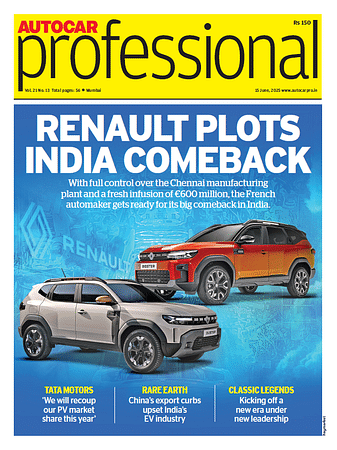Hyundai develops world’s first machine learning-based smart cruise control tech
The technology recognises and analyses driving patterns to apply to Smart Cruise Control, creating a customised self-driving experience; world’s first AI-based ADAS feature planned for upcoming HMG vehicle,
Hyundai Motor Group has announced the development of the world’s first machine learning-based Smart Cruise Control (SCC-ML), a technology that incorporates the driver’s patterns into its self-driving behaviour, creating a custom experience for the driver.
The technology, an industry first, incorporates artificial intelligence (AI) within the Advanced Driver Assistance System (ADAS) feature. The system is planned for implementation in future Hyundai Motor Group vehicles.
“The new SCC-ML improves upon the intelligence of the previous ADAS technology to dramatically improve the practicality of semi-autonomous features,” said Woongjun Jang, VP at Hyundai Motor Group. “Hyundai Motor Group will continue the development efforts on innovative AI technologies to lead the industry in the field of autonomous driving.”
Smart Cruise Control (SCC) enables an essential self-driving feature and core technology for ADAS: maintaining distance from the vehicle ahead while traveling at the speed selected by the driver. SCC-ML combines AI and SCC into a system that learns the driver’s patterns and habits on its own. Through machine learning, Smart Cruise Control autonomously drives in an identical pattern as that of the driver.
In order to operate the previous Smart Cruise Control, the driver manually adjusted driving patterns, such as the distance from the preceding vehicle and acceleration. It was impossible to meticulously fine-tune the settings to accommodate the diver’s individual preferences without machine learning technology.
For instance, even the same driver may accelerate differently in high-speed, mid-speed and low-speed environments depending on circumstance, but detailed fine-tuning was not available. Therefore, when Smart Cruise Control was activated and the vehicle operated differently than they prefer, drivers, sensed the difference, resulting in a reluctance to use the technology because it made them feel anxious and unstable.
How SCC-ML works
Hyundai Motor Group’s independently developed SCC-ML operates as follows: First, sensors, such as the front camera and radar, constantly acquire driving information and send it to the centralized computer. The computer then extracts relevant details from the gathered information to identify the driver’s patterns. An artificial intelligence technology called machine learning algorithm is applied during this process.
The driving pattern can be categorised into three parts: distance from preceding vehicles, acceleration (how quickly it accelerates), and responsiveness (how quickly it responds to driving conditions). In addition, driving conditions and speeds are considered as well.
For instance, maintaining a short distance from the preceding vehicle during slow, city driving, and further away when driving in the fast lane. Considering these various conditions, SCC-ML makes analysis to distinguish over 10 thousand patterns, developing a flexible Smart Cruise Control technology that can adapt to any driver’s patterns.
The driving pattern information is regularly updated with sensors, reflecting the driver’s latest driving style. In addition, SCC-ML is programmed specifically to avoid learning unsafe driving patterns, increasing its reliability and safety.
With upcoming Highway Driving Assist system that features automatic lane change assist, SCC-ML achieves Level 2.5 self-driving.
Also read: Hyundai's new centre side airbag can prevent front row passengers from colliding
Hyundai’s solar roof-charging system debuts on new Sonata Hybrid
Hyundai’s new CVVD tech improves performance, efficiency and slashes emissions
Hyundai develops world-first active shift control tech for hybrids
RELATED ARTICLES
BMW Group to use natural fibre composites in its future models
Following several years of development and in-depth research, the BMW Group has reached series maturity of natural fibre...
Nissan reinvents Leaf as a sleek electric SUV with 600km range
First launched as a hatchback in 2010, the third-generation Leaf is unrecognisable compared with its predecessors. The n...
Volvo Cars signs recycled steel supply pact with SSAB
The recycled steel will be used in selected components of the forthcoming, fully electric EX60 SUV, as well as other car...





 By Autocar Professional Bureau
By Autocar Professional Bureau
 21 Oct 2019
21 Oct 2019
 15333 Views
15333 Views















